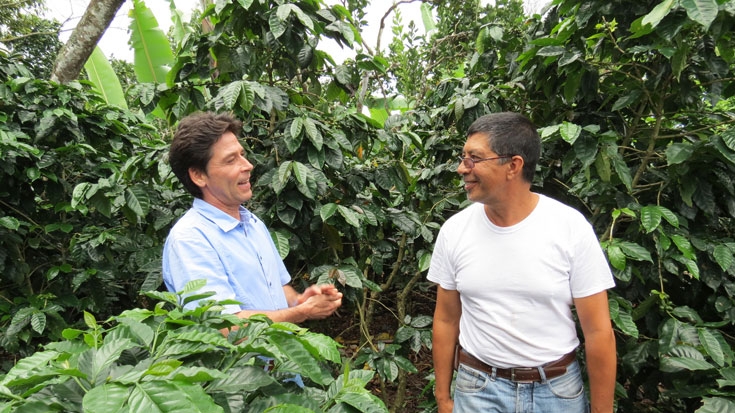A neatly pressed suit, a tie, one or two mobile phones ringing 24/7.
That's the image we have of the typical stockbrokers in a big city. They can interpret the thousands of numbers that appear on their screen, buy and sell shares and make their clients win - or loose - millions of dollars a year.
What if this knowledge reached small farmers in Latin America? It may sound like fiction, but learning to cope in the stock market is one of the alternatives that agricultural producers in Nicaragua have to face one of their biggest enemies: fluctuations in commodity prices.
Currently, it is estimated that 20% of the population of Latin America lives on agriculture and millions of farmers depend on their crops not only to generate income but also to provide food for their families. And the impact of the vagaries of markets - often caused by unexpected and abrupt climate changes - is felt in countries like Nicaragua, where this explosive combination affects the poorest.
In this situation, the Association of Producers and Exporters of Nicaragua and the Agricultural Exchange with support from the World Bank and the Social Development Fund of Japan will train three thousand farmers to understand the fluctuating prices of basic grains, vegetables and coffee and then use the stock exchange’s mechanisms like purchase agreements of their crops.
This will allow farmers to have certainties and decide when to buy and when to sell without affecting their income and food security.
Learn more in this VIDEO:

